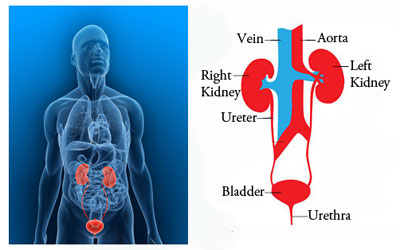
Renal cell carcinomas (RCC) is sometimes referred to as kidney adenocarcinomas, renal hyperplasia, or kidney or renal cancer. It is the second most common form of kidney cancer found in both adults and children. The kidneys are vital organs in the body that regulate fluid and blood balance while processing waste. They are made up of a variety of tissues including renal tubules, ureter, and renal pelvis.
RCC is not an invasive cancer and is often times difficult to detect because it grows very slowly. In addition to being slow growing, it can occur in the absence of any symptoms. Because RCC can be diagnosed through a CT scan, MRI, or PET scan, it is a very fast growing and treatable form of cancer.
Since there are no specific treatments for RCC, there are several ways to prevent it from developing. For example, eating a healthy diet and getting regular exercise will keep your body's systems healthy by reducing the risk of developing cancer.
People with a family history of cancer have the greatest risk of developing cancer cells. They are more likely to develop tumors if they have had their kidneys removed. Kidney stones can also be dangerous and cause death. This type of cancer can also be hereditary. If you have one of these conditions, you may want to talk to your doctor about a possible treatment option.
People who are smokers are at greater risk of developing cancer cells. Even though smoking does not directly cause cancer, it increases the risk of getting cancer after a person stops smoking. It is important to quit smoking if you have a family history of cancer.
Kidney infection is another cause of cancer. This type of cancer is caused by an organism known as gram-negative bacteria. Various antibiotics used to treat kidney infections can increase the risk of kidney cancer. People who are taking steroids, birth control pills, or diuretics should avoid taking these medicines for a period of time to prevent complications.
Sometimes people experience changes in their skin and kidneys. These changes can be caused by tumors of the kidneys or other parts of the urinary tract. Some skin changes include: enlarged skin marks, enlarged kidneys, thickening of the bladder or urethra walls, cloudy urine, and swelling in the lower abdomen.
As you can see, people experience changes in the kidneys and skin due to various factors. While this condition can spread to other parts of the body, it is important to talk to your doctor about any concerns you may have with these issues.
People who have been exposed to certain toxins are at greater risk of developing skin cancer
Chemicals used in industry, asbestos and other chemicals, are thought to increase the risk of developing cancer cells in the skin. Other environmental factors that can cause skin cancer include: exposure to pesticides, herbicides, and pesticides. Excessive sun exposure.
Treatment for kidney cancer depends on how the disease progresses. Early detection and treatment is the best way to stop the progression of cancer. Treatment options include:
- Chemotherapy – this treatment will remove the cancerous cells from the body and remove the primary tumor. Chemotherapy is often combined with surgery in order to kill any existing tumor. and prevent any new ones from forming. This procedure can be used for those who have tumors in the bladder and/or kidneys.
- Surgery – this process removes part or all of the kidney and removes the tumor through surgery. Surgery is sometimes used for the treatment of kidney cancer in order to treat tumors on other parts of the body. Although surgery can remove the entire tumor, it may also be used to treat kidney cancer that has spread to other areas of the body.
- Radiation Therapy – this is also known as X-ray therapy. This treatment will destroy or shrink the cancerous cells.
